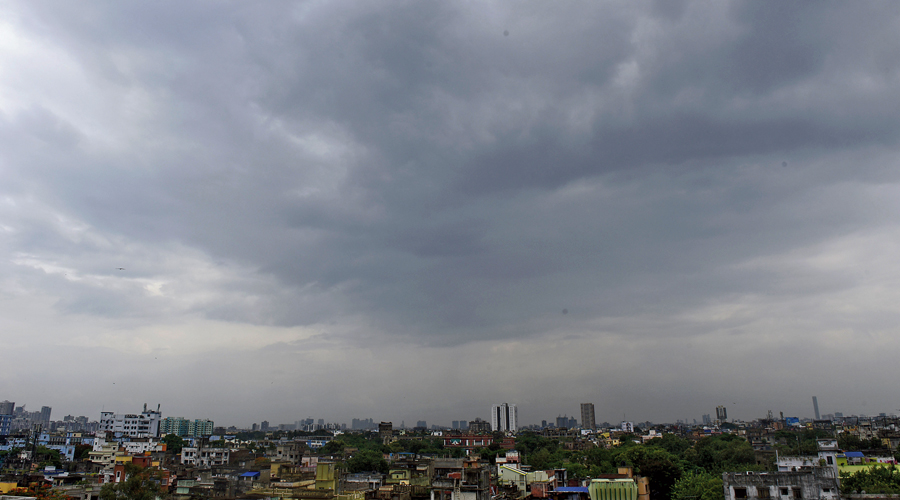Three air quality monitoring stations in the city reported ‘poor’ air quality on Tuesday, highlighting the need to refrain from bursting firecrackers, which release poisonous gases and metals in the air.
At noon on Tuesday, two days before Diwali, the air quality was ‘poor’ at the monitoring stations in Bidhannagar, Jadavpur and Rabindra Bharati University. It was moderate in Ballygunge, Fort William, Rabindra Sarobar and Victoria Memorial.
According to the Central Pollution Control Board (CPCB), “poor” air can cause “breathing discomfort to most people on prolonged exposure”.
Air of “moderate” quality can cause “breathing discomfort to the people with lungs, asthma and heart diseases”.
Every year, Kolkata’s air quality starts worsening as the Celsius begins to dip. This happens because of natural phenomena but additional emissions caused by human activities such as bursting of firecrackers on Diwali and Kali Puja only worsen the situation.
“The air quality worsens during winter because of a natural phenomenon known as temperature inversion. During summer, the air close to the ground is warm and the air above is cooler. As a result the air closer to the ground rises, taking pollutants with it,” said an environmental engineer with the state pollution control board.
“But during winter, the air close to the ground is cooler and the layer above is warmer. This traps the pollutants as the air closer to ground remains stagnant for long. Besides, the wind speed in winter is generally around 3-5km per hour, which is much lower than the wind speed in summer. Higher wind speed helps disperse the pollutants,” said the environmental engineer.
The situation worsens when additional emission is released in the air following bursting of firecrackers, which have a high concentration of metals. The particulate matters that are released by firecrackers enter the lungs of humans and can cause a host of critical ailments.
Ajoy Sarkar, pulmonologist at Peerless Hospital, said poor air quality increased the incidence of asthma.
“It also affects the people suffering from chronic obstructive pulmonary disorder and bronchitis,” he said. “The particles that are less than 3 micron in size can enter the alveoli and damage them. The short-term effects include constant coughing that doesn’t go away even after taking cough syrup.”
The heavy metals in firecrackers get deposited in the lungs and cause permanent damage, said Kausik Chaudhuri, a pulmonologist with Beleghata ID Hospital.
Poor ambient air can be extremely distressing to people suffering from Covid. “Mild Covid can deteriorate to moderate Covid and moderate Covid to severe disease if patients are exposed to air carrying heavy metals and chemicals released by firecrackers,” said Chaudhuri, who is nodal officer for Covid treatment at Beleghata ID Hospital.
